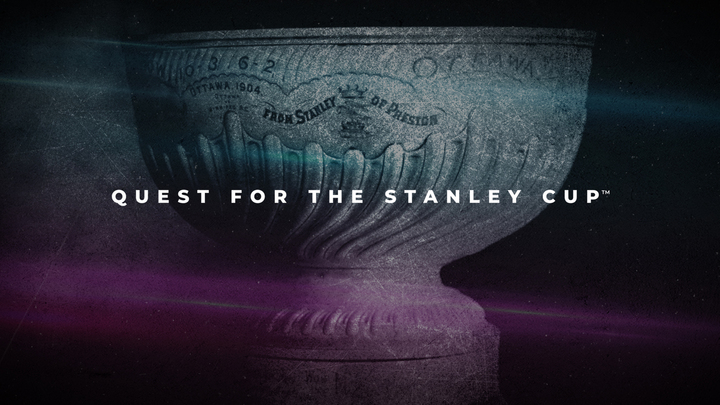In 1984 — the exact same yr that Bruce Springsteen, Prince and Madonna dominated the pop charts with “Born in the usA.,” “Purple Rain” and “Like a Virgin,” respectively — there was a further traditional that by no means ever noticed the lightweight of working day.
Leonard Cohen’s towering tune “Hallelujah” was rejected — alongside with the relief of his “Varied Positions” album — by then-CBS Info head Walter Yetnikoff. “He defined, ‘Leonard, we all know you’re incredible, however we don’t know when you’re any superior,’ ” recollects the late singer-songwriter within the new documentary “Hallelujah: Leonard Cohen, a Journey, a Tune,” which opens in theaters Friday.
However that might convert out to be solely a “minor fall” within the music’s prolonged ascent to the pantheon of legendary tunes. A triumph of the 2 perseverance and plain brilliance, it was a determined, a protracted time-spanning journey that took “Hallelujah” from John Cale and Jeff Buckley addresses to “Shrek” and “American Idol” ubiquity.
“It took so quite a lot of a number of years to prepare, like a wonderful bottle of wine, that when it lastly strike, it was unstoppable,” John Lissauer — who created Cohen’s genuine model of “Hallelujah” — instructed The Submit.


Now, it’s a music that gives grace, grandeur and gravitas to any momentous event. “It’s a music that individuals use at funerals and weddings, they usually use it when their child is born,” stated Alan Light, whose freshly up-to-date e ebook “The Holy or the Broken: Leonard Cohen, Jeff Buckley, & the Not going Ascent of ‘Hallelujah’ ” inspired the present documentary.
Cohen skilled been doing work on crafting “Hallelujah” for a very long time — doubtless by way of a whole lot of verses in pocket book quickly after pocket book — when he very first performed it for Lissauer in 1983. “It was completely totally different than we all know it now,” he claimed. “He was strumming it on this minimal nylon [string] guitar. So we sat on the piano, and I commenced collaborating in it like gospel.”
Whereas the lyrics have been shrouded in secret, leaving the which means speak in confidence to interpretation, Lissauer knew appropriate absent that “Hallelujah” was something particular: “I reported, ‘That is actually an crucial music. This could possibly be ridiculously large. This might contact each particular person.’ It turned out it was precisely what we anticipated — simply 20 a number of years too early.”

Following Columbia Data, a division of CBS, rejected “Varied Positions” — and its potential fundamental “Hallelujah” — the album eventually obtained an unheralded US launch on an impartial label in 1985. In the meantime, Cohen commenced striving out distinctive variations of the “Hallelujah” lyrics in his performances, getting the music from its much more religious origins into much more secular, sensual territory.
Cohen acquired “an incredible affirmation” — as he describes within the documentary — when Bob Dylan discovered “Hallelujah” and coated it on tour in 1988. “It’s all of the way more outstanding that the an individual man who seen some factor attention-grabbing in that tune on the time is Bob Dylan,” stated Light. “I suggest, which is why he’s Bob Dylan.”

Then Velvet Underground co-founder Cale lined “Hallelujah” on the 1991 tribute album “I’m Your Admirer: The Tunes of Leonard Cohen.” In easy reality, it was Cale who edited quite a few variations of the lyrics into the standard rendition that we all know now. And it was Cale’s remake that was first heard by the late singer-songwriter Jeff Buckley, inspiring him to file “Hallelujah” on his 1994 debut album “Grace.”
Simply after Buckley’s drowning lack of life at 30 in 1997, his additional angelic, obtainable contemplate on “Hallelujah” grew to become, to numerous, the definitive model. “I assume there may be an intimacy to it,” claimed Gentle. “It appears like Jeff is whispering in your ear. And it’s significantly younger. Leonard recorded this music when he was 50 many years outdated.”

However “Hallelujah” was destined for even larger objects when it was picked for a significant psychological scene within the 2001 animated blockbuster “Shrek.” Within the documentary, “Shrek” co-director Vicky Jenson explains how she edited out “the naughty bits” of the lyrics while trimming down the music for the film. And although it’s Cale’s version of the observe that Shrek is singing within the film, Rufus Wainwright’s rendition is showcased on the hit soundtrack.
Instantly after “Shrek” produced “Hallelujah” a family tune that transcended generations, the observe went on to become a typical choose on Television set singing competitions these as “American Idol,” “The Voice” and “The X Variable.” In actual fact, quickly after Alexandra Burke gained Britain’s “The X Issue” singing “Hallelujah” within the 2008 finale, her mannequin of the tune went No. 1 within the British isles.

As “Hallelujah” grew to become the form of timeless tune that can reside completely, Cohen “was tickled about it,” stated Lissauer. Certainly, simply occasions after Cohen’s demise and Donald Trump’s victory within the 2016 presidential election, the observe captured the custom when it was carried out by Kate McKinnon as Hillary Clinton within the chilly opening of “Saturday Night Keep.”
“It was that tune that you may rework to and get the sensation they’d been looking out for,” claimed Gentle.







